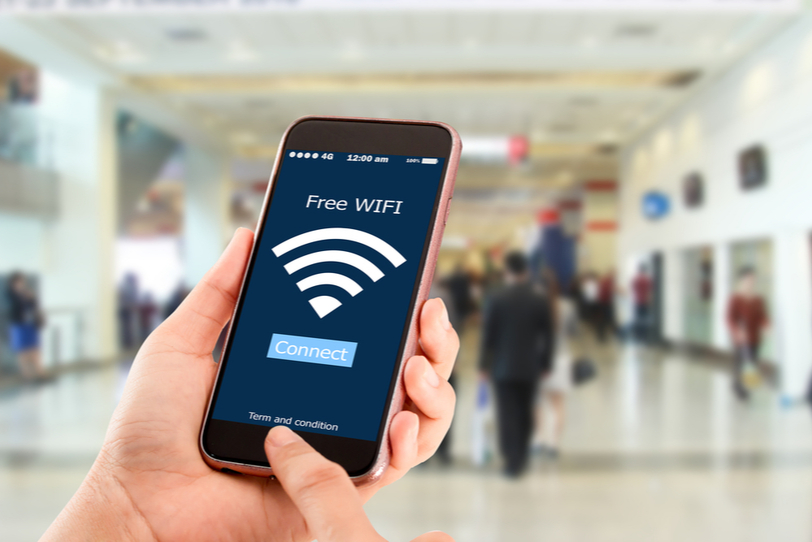
Free Wi-Fi networks are available in coffee shops, restaurants, libraries, airports, public transport, and shopping malls. Millions of people are using these networks daily.
However, these public networks are not safe to use. Even if they are protected by passwords hackers can still easily steal all your online activities. We all love free WiFi networks. But, they are also loved by hackers. Thus, you shouldn’t use these Wi-Fi networks without adequate protection. You can follow these 6 tips to stay secure while using public hotspots:
-
Think before connecting
It is difficult to spot fake Wi-Fi networks. But, you should think before connecting to any public network. Most hackers create a new public network with the same name. Thus, you get connected to a fake network that is created by a hacker. Don’t connect to any network which looks suspicious to you. You can use hotspots which are semi-private. For example, you can use hotspots which are given to you in the hotel. If you are in a public location like a library or airport, then you must pay extra caution before joining the network. You can also ask the nearby staff about the official WiFi network. If the network requires you to create a new account, then don’t use any existing passwords.
-
Always Surf Safely
It is very important to surf safely while using public networks. If you are visiting any website that requires a login, then you must check if the address of that website starts with https. Never open any website that requires you to enter your financial details while using public networks. If someone is tracking your device, then your bank account will easily get hacked. Also, never any software while using public networks. You may end up infecting your system with some ransomware.
- Use a Virtual
Private Network
Virtual Private Network or VPN is the best option to surf the internet while using public networks. It is one of the best tools that will keep your information secure when you are using public networks. VPN will automatically encrypt all your traffic. Virtual Private Network is like a protected tunnel between the server and the client (browser). All the information that is passing through this tunnel won’t be visible to the network owner or hackers. Thus, hackers can’t track your activities or access your information.
The best think about VPN is that it will also mask your IP address. Thus, you can access blocked websites by using a VPN service. But, all VPN services are not secure. If you are using a free VPN, then it will be less secure when compared to premium VPNs. It is best to buy paid VPNs. They will provide you additional security.
-
Don’t turn off your Firewall
Most people think that Windows Firewall is useless. Thus, they turn it off. But, the firewall can protect your device from hackers. It will make sure that hackers can’t access your device. Thus, you should always keep it enabled.
A firewall will also protect your computer from data-based malware. It will actively check the data packets that are coming from the public network. It will analyze the data packets and check if they are safe. If there is any malicious data packet, then it will automatically block the data. By blocking malicious data, the firewall will protect you against hacking attempts. Thus, make sure to enable the firewall on your computer. If you have turned off the Windows firewall, then you can follow below steps to turn it on:
- Open Control Panel in your computer
- Head to the “System and Security” section
- Enable “Windows Firewall”
-
Use Antivirus
Antivirus can protect your computer from various threats. It will protect your device when you are using public networks. Antivirus will detect malware and delete them from your device. Always make sure that you are using the latest version of your antivirus program. You should always update the virus definition of your antivirus. If any known malware is loaded into your computer, then your antivirus will show an alert. Your antivirus will also notify if someone is doing any malicious attack on your system.
-
Turn off file sharing option
If any hacker is connected to the same public network, then he will try to send the malicious files to your device. Thus, it is very important to turn off the file-sharing option on your computer. When you are connecting to a new network make sure to select the “public network” option. You can also go to the control panel to turn off the “File sharing” option. This will make sure that hackers can’t send malicious files to your computer.
Digital security is very important in the modern world. You should protect your device while using Public hotspot networks. Otherwise, hackers can easily hack into your device. All the tips mentioned in this article are very easy and simple to apply. You can use these tips to protect yourself from hackers.
Contact us today to learn about Bleuwire™ services and solutions in how we can help your business.





